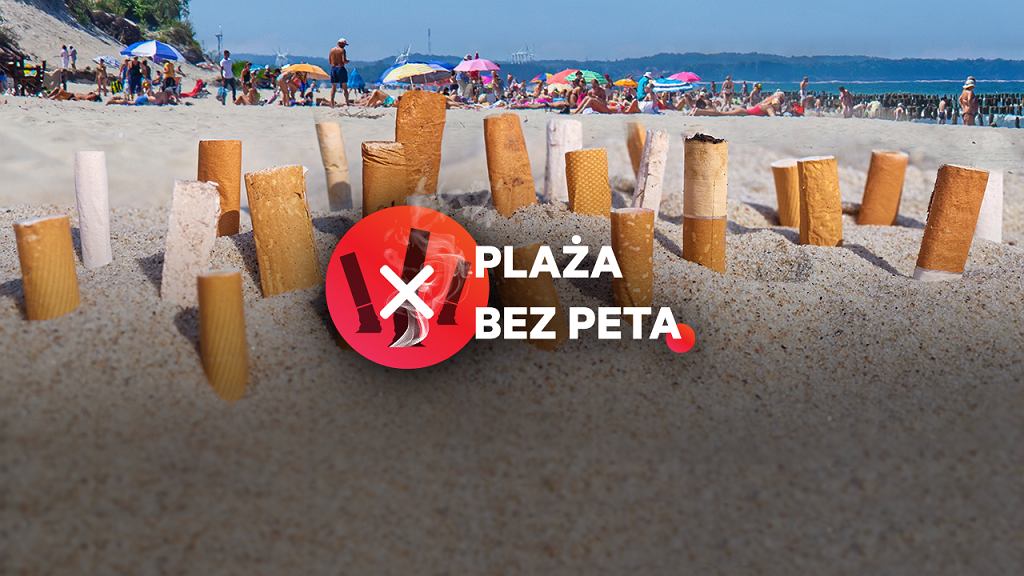A seaside resort on Poland’s Baltic coast has introduced biodegradable ashtrays to be used on its beaches as part of a campaign aiming to dissuade tourists from discarding cigarettes and increase awareness of the harmful effects of littering.
Cigarette butts are the most common litter found in the sea, and Polish coastal resorts spend millions of zloty each year from their local budgets to clean up beaches.
During the holidays, the city of Gdańsk alone spends around one million zloty (€218,000) clearing cigarette butts from the sand. But their small size can make it difficult to remove them from beaches.
Most Poles are holiday at home this summer amid the pandemic – but that doesn't mean they are missing out.
We take a photographic tour through 10 of Poland's best destinations, from beaches in the north to mountains in the south and stunning lakes between https://t.co/fdyxSbmCzP
— Notes from Poland 🇵🇱 (@notesfrompoland) July 9, 2020
The small coastal town of Mielno is offering tourists cardboard biodegradable ashtrays, which can be disposed of in rubbish bins after a day at the beach. The ashtrays are available from the town hall, tourist information points, resorts and hotels, as well as from lifeguards.
The cone-shaped ashtrays are designed to be weighed down with sand and then folded up and thrown in the bin when the user leaves the beach.
The scheme is part of the “Beach without a Butt” campaign, a seasonal drive by media outlet Gazeta.pl in partnership with Greenpeace aiming to increase tourists’ awareness of beaches where smoking bans operate and encourage them to tidy up after themselves.
The campaign, which was first launched two years ago, runs until September this year. It helps local governments and coastal towns to explain the difficulties in cleaning beaches of cigarette butts, as well as the harm butts can cause to the environment.
A map of clean beaches is also being prepared, with towns and businesses encouraged to display campaign posters and stickers.
“Despite the mechanical combing and aeration of the sand, it is very difficult to clean the beach of all cigarette butts,” Bartłomiej Rutkowski, the coordinator of sea bathing areas at Gdynia Sports Centre, told Onet. “Nevertheless, the cleaning staff do their best to clean the beaches down to the last cigarette.”
Rules on smoking tobacco on beaches are determined by local authorities. Some, including Gdańsk and Gdynia, have a ban on smoking on guarded bathing beaches and other organised bathing areas. Smokers as well as litterers can be fined up to 500 zloty (€110).
“Unfortunately, not many people know” about the rule in Gdynia, Leonard Wawrzyniak of the local city police told Onet.
Baltic sea resorts are among the most popular holiday destinations among Poles. As uncertainty over the coronavirus pandemic continues, many are opting to visit the country’s beaches this summer too, reports TVP.
“There is still a lot of uncertainty about going abroad,” Tomasz Dowgiałło from the Warmia and Masuria Tourist Organisation told PAP. “Certainly, it will not be such a boom as last year, but Poles will definitely decide to stay in the country to a large extent.”
The price of holidays on the Baltic coast has risen in recent months, especially at some of the most popular resorts, according to Gazeta.pl. In one popular resort, Ustka, over 97% of apartments are booked for July and August. Transport and food prices have also increased, reports TVN.
Main image credit: Gmina Mielno/Facebook

Juliette Bretan is a freelance journalist covering Polish and Eastern European current affairs and culture. Her work has featured on the BBC World Service, and in CityMetric, The Independent, Ozy, New Eastern Europe and Culture.pl.




















